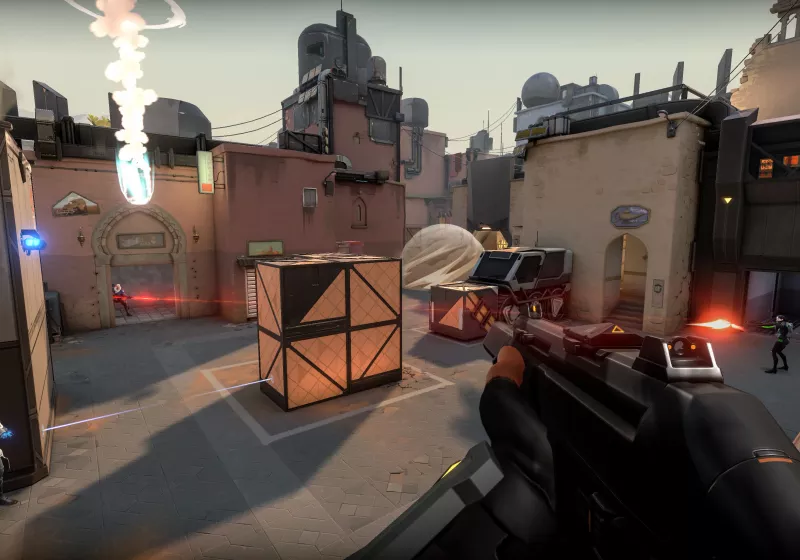OpenAI’s “will they, won’t they” flirtation with becoming a for-profit corporation is over. On Tuesday, the company announced that it has completed its recapitalization process, turning its AI lab into a for-profit corporation despite the objections of the company’s co-founder, Elon Musk.
“We believe that the world’s most powerful technology must be developed in a way that reflects the world’s collective interests,” OpenAI chairman Brett Taylor wrote of the change. “The close of our recapitalization gives us the ability to keep pushing the frontier of AI, and an updated corporate structure to ensure progress serves everyone.”
Under the new structure, there are now two separate entities: the OpenAI Foundation, which is a non-profit organization with partial control over OpenAI Group, a newly formed public benefit corporation. Under the new structure, OpenAI Group will be able to do things that a for-profit entity can (and a non-profit can’t), like raise more money and acquire companies. It will also get its own board of directors, which the Foundation will appoint.
OpenAI Foundation will own 26% of the now for-profit OpenAI Group, valued at around $130 billion, and will continue to be granted shares of the company as it grows. Microsoft will hold a 27% stake in the for-profit arm, which is currently valued at about $135 billion. Microsoft also announced that, as a part of this shift, it will continue to hold intellectual property rights to OpenAI models and future products through 2032. The remaining 47% of the company’s stock will be held by other investors and the employees of OpenAI Group.
In announcing the for-profit move, Altman said in a livestream that his hope is for the OpenAI Foundation to be one of the “biggest non-profits ever.” The expectation is for the Foundation to use its equity stake in the OpenAI Group to help fund philanthropic work. That will start with a $25 billion commitment to “health and curing diseases” and “AI resiliance” to counteract some of the risks presented by the deployment of AI.
Altman also seemed to shift the goal posts on achieving artificial general intelligence, taking a posture that OpenAI aims to develop a “personal AGI” that will be available to people via tools that they will then use to create new things.
As part of a frankly pretty messy Q&A session at the end of the stream, Altman and OpenAI Chief Scientist Jakub Pachocki answered questions from viewers. That included a question on when AGI will be achieved. Pachocki said, “In some number of years, we will look back at these years and say this was the transition period when AGI happened,” but did not provide a definitive answer. Altman declined to provide an answer related to AGI, instead pivoting to a goal of creating an “AI researcher” capable of performing autonomous research by 2028.
Notably, Microsoft announced that as part of the new arrangement with OpenAI, if the company declares that it has achieved artificial general intelligence, it will have to have that verified by an independent expert panel.
Throughout the Q&A, Altman was peppered with questions that clearly had an air of frustration.
When asked why OpenAI has copied TikTok’s model with Sora and may introduce ads to ChatGPT despite warning about tech becoming addictive and eroding trust, Altman admitted that he’s still worried about these problems but said, “You’ll have to judge us on our actions,” without providing anything resembling a real answer. The majority of the most upvoted questions from audience members in the Q&A were from users frustrated by the guardrails that prevent them from having “adult” conversations with ChatGPT, which resulted in Altman repeatedly apologizing for the rollout of its latest model and safety features. At times, Pachocki and Altman appeared to be trying to pass difficult questions to each other to handle rather than committing to an answer themselves.
The move to a for-profit structure has been a point of contention around OpenAI for years now. Despite initially being founded as a non-profit, OpenAI launched a for-profit subsidiary in 2019, and in 2024, it announced a plan to restructure to form a public benefit corporation that would shift ownership of OpenAI’s models to the for-profit arm. That received a significant amount of pushback, including from co-founder Elon Musk, who sued to prevent the restructuring from taking place. While the legal challenges temporarily prevented OpenAI from making the change, the company decided to go forward with the recapitalization anyway. Time will tell if it sticks.
While Musk will likely continue to object to the change, another opponent of OpenAI’s for-profit shift appears to be standing down. According to TIME, California Attorney General Rob Bonta won’t sue to prevent OpenAI from forming its corporate arm. “We secured concessions that ensure charitable assets are used for their intended purpose, safety will be prioritized, as well as a commitment that OpenAI will remain right here in California. With these important concessions in place, we will not be in court opposing OpenAI’s recapitalization plan,” Bonta told TIME in an email.










 English (US) ·
English (US) ·